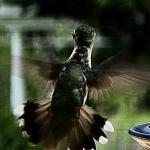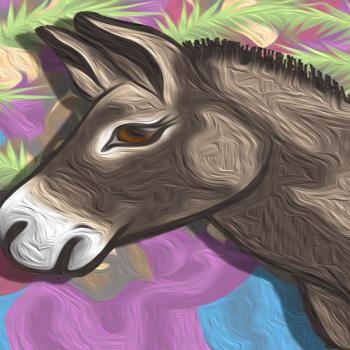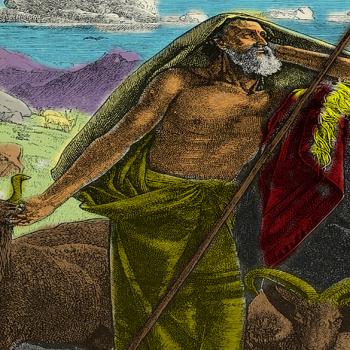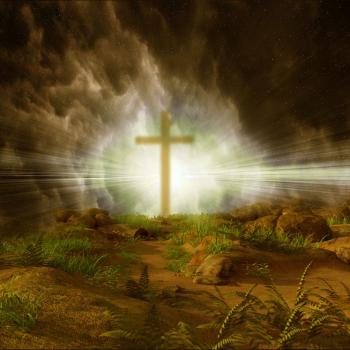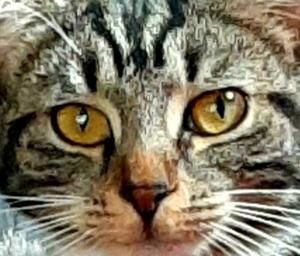
I am a cat person, whatever that really means. Probably, it means that my cats are my babies, and I pay them a lot of attention. I have often noticed similarities between the ways of the cat and human behavior.
The Ways of the Cat in the Bible?
“The Bible doesn’t mention cats because they were rare in ancient Israel. However, cats are mentioned at least once in the Old Testament’s Baruch, a prophetic book written by the Scribe in front of Jeremiah. In chapter 6, Jeremiah satirizes pagan idols by describing how cats know that they aren’t gods and shouldn’t be feared. Jeremiah says that cats take advantage of the idols’ primitive cat towers to nap and chase birds.”
“In Orthodox Christianity, cats are the only animals that can enter temples and are an important part of Russian Orthodox monasteries. In some cultures, it’s said that owning a cat, especially letting one into a new house before the humans move in, brings good fortune.”
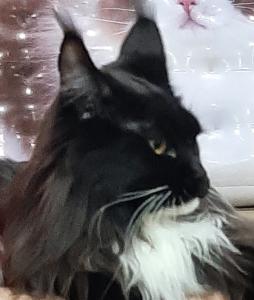
Cats are amazing creatures–smart, sassy, independent. I have heard it said that, “In ancient Egypt, cats were worshiped as gods. Cats have not forgotten.” The aloofness of cats is certainly a thing, but I, and apparently many poets over the centuries, consider cats to demonstrate an intellect comparable to people. Here is a brief poetic study of the ways of the cat and human behavior.
The Ways of the Cat “Pangur Ban”
“Pangur Bán” survives as the most famous poem of Old Ireland, composed by an Irish monk sometime around the 9th century. The text compares the work of a scholar and his pet cat, Pangur Bán. The poem can be found in the Reichnenau Primer at St. Paul’s Abbey in Lavanttal, Austria. This is how it goes:
I and Pangur Bán, my cat,
‘Tis a like task we are at;
Hunting mice is his delight,
Hunting words I sit all night.
Better far than praise of men
‘Tis to sit with book and pen;
Pangur bears me no ill-will,
He, too, plies his simple skill.
‘Tis a merry thing to see
At our tasks how glad are we,
When at home we sit and find
Entertainment to our mind.
Oftentimes a mouse will stray
In the hero Pangur’s way;
Oftentimes my keen thought set
Takes a meaning in its net.
‘Gainst the wall he sets his eye
Full and fierce and sharp and sly;
‘Gainst the wall of knowledge I
All my little wisdom try.
When a mouse darts from its den,
O! how glad is Pangur then;
O! what gladness do I prove
When I solve the doubts I love.
So in peace our task we ply,
Pangur Bán, my cat, and I;
In our arts we find our bliss,
I have mine, and he has his.
Practice every day has made
Pangur perfect in his trade;
I get wisdom day and night,
Turning darkness into light.

The Ways of “My Cat Jeoffry”
Another poem that demonstrates the similarities in the ways of the cat and human behavior is from “Jubilate Agno.” Sometime between 1758 and 1763, incarcerated author Christopher Smart wrote a long free-verse manuscript about his spiritual and intellectual cat Jeoffry. Thirty-two pages of this manuscript are still in existence. The work establishes a strict format. With only three exceptions, every line on one set of pages begins with the word “Let” and every line on the other pages begins with the word “For.” Smart’s observations record the structured routines of his cat.
For I will consider my Cat Jeoffry.
For he is the servant of the Living God duly and daily serving him.
For at the first glance of the glory of God in the East he worships in his way.
For this is done by wreathing his body seven times round with elegant quickness.
For then he leaps up to catch the musk, which is the blessing of God upon his prayer.
For he rolls upon prank to work it in.
For having done duty and received blessing he begins to consider himself.
For this he performs in ten degrees.
For first he looks upon his forepaws to see if they are clean.
For secondly he kicks up behind to clear away there.
For thirdly he works it upon stretch with the forepaws extended.
For fourthly he sharpens his paws by wood.
For fifthly he washes himself.
For sixthly he rolls upon wash.
For seventhly he fleas himself, that he may not be interrupted upon the beat.
For eighthly he rubs himself against a post.
For ninthly he looks up for his instructions.
For tenthly he goes in quest of food.
For having consider’d God and himself he will consider his neighbour.
For if he meets another cat he will kiss her in kindness.
For when he takes his prey he plays with it to give it a chance.
For one mouse in seven escapes by his dallying.
For when his day’s work is done his business more properly begins.
For he keeps the Lord’s watch in the night against the adversary.
For he counteracts the powers of darkness by his electrical skin and glaring eyes.
For he counteracts the Devil, who is death, by brisking about the life.
For in his morning orisons he loves the sun and the sun loves him.
For he is of the tribe of Tiger.
For the Cherub Cat is a term of the Angel Tiger.
For he has the subtlety and hissing of a serpent, which in goodness he suppresses.
For he will not do destruction, if he is well-fed, neither will he spit without provocation.
For he purrs in thankfulness, when God tells him he’s a good Cat.
For he is an instrument for the children to learn benevolence upon.
For every house is incomplete without him and a blessing is lacking in the spirit.
For the Lord commanded Moses concerning the cats at the departure of the Children of Israel from Egypt.
For every family had one cat at least in the bag.
For the English Cats are the best in Europe.
For he is the cleanest in the use of his forepaws of any quadruped.
For the dexterity of his defence is an instance of the love of God to him exceedingly.
For he is the quickest to his mark of any creature.
For he is tenacious of his point.
For he is a mixture of gravity and waggery.
For he knows that God is his Saviour.
For there is nothing sweeter than his peace when at rest.
For there is nothing brisker than his life when in motion.
For he is of the Lord’s poor and so indeed is he called by benevolence perpetually—Poor Jeoffry! poor Jeoffry! the rat has bit thy throat.
For I bless the name of the Lord Jesus that Jeoffry is better.
For the divine spirit comes about his body to sustain it in complete cat.
For his tongue is exceeding pure so that it has in purity what it wants in music.
For he is docile and can learn certain things.
For he can set up with gravity which is patience upon approbation.
For he can fetch and carry, which is patience in employment.
For he can jump over a stick which is patience upon proof positive.
For he can spraggle upon waggle at the word of command.
For he can jump from an eminence into his master’s bosom.
For he can catch the cork and toss it again.
For he is hated by the hypocrite and miser.
For the former is afraid of detection.
For the latter refuses the charge.
For he camels his back to bear the first notion of business.
For he is good to think on, if a man would express himself neatly.
For he made a great figure in Egypt for his signal services.
For he killed the Ichneumon-rat very pernicious by land.
For his ears are so acute that they sting again.
For from this proceeds the passing quickness of his attention.
For by stroking of him I have found out electricity.
For I perceived God’s light about him both wax and fire.
For the Electrical fire is the spiritual substance, which God sends from heaven to sustain the bodies both of man and beast.
For God has blessed him in the variety of his movements.
For, tho he cannot fly, he is an excellent clamberer.
For his motions upon the face of the earth are more than any other quadruped.
For he can tread to all the measures upon the music.
For he can swim for life.
For he can creep.

The Ways of Baudelaire’s Cat
Charles Baudelaire (April 1821 – 31 August 1867) was a French poet, essayist, translator and art critic. His poems are described as “exhibiting mastery of rhyme and rhythm, containing an exoticism inherited from the Romantics, and are based on observations of real life.”
They are alike, prim scholar and perfervid lover:
When comes the season of decay, they both decide
Upon sweet, husky cats to be the household pride;
Cats choose, like them, to sit, and like them, shudder.
Like partisans of carnal dalliance and science,
They search for silence and the shadowings of dread;
Hell well might harness them as horses for the dead,
If it could bend their native proudness in compliance.
In reverie they emulate the noble mood
Of giant sphinxes stretched in depths of solitude
Who seem to slumber in a never-ending dream;
Within their fertile loins a sparkling magic lies;
Finer than any sand are dusts of gold that gleam,
Vague starpoints, in the mystic iris of their eyes.
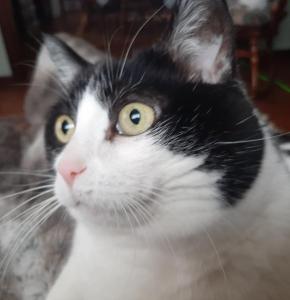
The Ways of Dickenson’s Chuckling Cat
The 507th poem in [Emily] Dickenson’s Complete Poems is “She sights a Bird – she chuckles.” Though more traditionally cat-like, her inspiration is personified in the chuckle.
She sights a Bird—she chuckles—
She flattens—then she crawls—
She runs without the look of feet—
Her eyes increase to Balls …
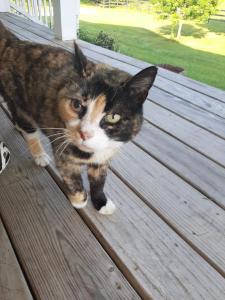
This little poem perfectly captures, in a few, well-chosen words, the essence of the cat. Just a side note: I have been told that all of Dickenson’s poems can be sung to the tune of “The Yellow Rose of Texas.” I don’t know about all of them, but this one can. OK, so this one doesn’t really express intellect, but it does refer to skill.
“The Naming of Cats”
T. S. Eliot (1888 –1965) meticulously studied and described the intellectual nature of cats in his Old Possum’s Book of Practical Cats, which you may know better as Andrew Lloyd Webber’s opera Cats. Here is just a smidge:
The Naming of Cats is a difficult matter,
It isn’t just one of your holiday games;
You may think at first I’m as mad as a hatter
When I tell you, a cat must have THREE DIFFERENT NAMES.
First of all, there’s the name that the family use daily,
Such as Peter, Augustus, Alonzo, or James,
Such as Victor or Jonathan, George or Bill Bailey—
All of them sensible everyday names.
There are fancier names if you think they sound sweeter,
Some for the gentlemen, some for the dames:
Such as Plato, Admetus, Electra, Demeter—
But all of them sensible everyday names,
But I tell you, a cat needs a name that’s particular,
A name that’s peculiar, and more dignified,
Else how can he keep up his tail perpendicular,
Or spread out his whiskers, or cherish his pride?
Of names of this kind, I can give you a quorum,
Such as Munkustrap, Quaxo, or Coricopat,
Such as Bombalurina, or else Jellylorum—
Names that never belong to more than one cat.
But above and beyond there’s still one name left over,
And that is the name that you never will guess;
The name that no human research can discover—
But THE CAT HIMSELF KNOWS, and will never confess.
When you notice a cat in profound meditation,
The reason, I tell you, is always the same:
His mind is engaged in a rapt contemplation
Of the thought, of the thought, of the thought of his name:
His ineffable effable
Effanineffable
Deep and inscrutable singular name.
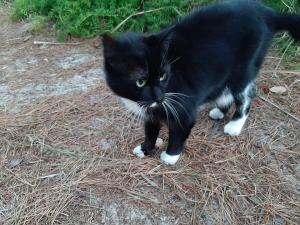
Oh, Cats
I could go on and on with wise and prominent cats in literature, like Deetz and Risden’s Kitty Boy who travels with his friend Rabbit to solve the problems of the universe. The ways of the cat and human behavior have been observed and compared by writers for centuries in many different genres. However, don’t just believe me. If you love felines, you will perhaps be inspired to seek out more on your own. It’s like I’ve always said where pets are concerned: “Dogs are dogs, birds are birds, and cats are people.”

Proverbs 12:10a–The godly care for their animals.
God bless you and your feline (or canine) friends!


